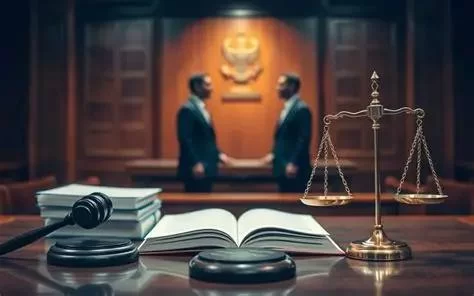- 1-Defining-Misdemeanors-and-Felonies
- 2-Legal-Distinctions-Between-Misdemeanors-and-Felonies
- 3-Examples-of-Misdemeanors-and-Felonies
- 4-Penalties-and-Consequences
- 5-Real-World-Cases-Demonstrating-the-Differences
- 6-How-Central-Texas-Employment-Lawyers-Can-Help
1. Defining Misdemeanors and Felonies
In criminal law, crimes are typically categorized as misdemeanors or felonies based on their severity. A misdemeanor is generally considered a less serious offense, often punishable by fines or short-term jail time. Felonies, on the other hand, are more serious crimes that carry heavier penalties, including longer prison sentences.
1.1 Importance of Classification
This classification impacts the legal process, sentencing, and the defendant’s long-term consequences.
2. Legal Distinctions Between Misdemeanors and Felonies
Misdemeanors are typically offenses punishable by up to one year in county or local jail, whereas felonies usually involve state or federal prison terms exceeding one year.
Felonies often require more complex court proceedings and may result in loss of civil rights, such as voting or firearm ownership.
2.1 Charging and Trial Differences
Felony charges may require grand jury indictments, while misdemeanors often proceed via direct complaint.
3. Examples of Misdemeanors and Felonies
Common misdemeanors include petty theft, simple assault, and first-time DUI offenses. Felonies include murder, robbery, drug trafficking, and aggravated assault.
3.1 Overlapping Cases
Some crimes can be charged as either misdemeanor or felony depending on circumstances, such as domestic violence or theft amounts.
4. Penalties and Consequences
Penalties for misdemeanors usually involve shorter jail time, probation, or community service, whereas felonies can lead to lengthy incarceration and substantial fines.
Felony convictions often have lasting impacts on employment, housing, and professional licensing.
5. Real-World Cases Demonstrating the Differences
In a notable case, an individual charged with misdemeanor theft served probation and community service, while a similar case involving felony theft led to a multi-year prison sentence due to the value stolen.
These distinctions show the critical importance of legal representation and understanding charges thoroughly.
6. How Central Texas Employment Lawyers Can Help
Central Texas Employment Lawyers provide expert legal counsel for clients facing misdemeanor or felony charges, particularly where employment rights and criminal records intersect.
They assist in navigating the complex legal system, protecting client rights, and seeking the best possible outcomes in both criminal and employment contexts.
6.1 Seeking Legal Guidance
If you or a loved one faces criminal charges, early consultation with Central Texas Employment Lawyers can make a significant difference in your case.




